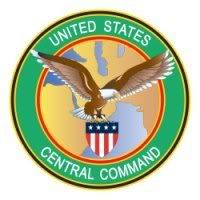Middle East Round-Up 9/17
U.S. confirms Syria-N. Korea nuke link
The United States has determined that Syria has been seeking nuclear weapons from North Korea.
"We do know that there are a number of foreign technicians that have been in Syria," Acting Deputy Assistant Secretary of State Andrew Semmel said. "We do know that there may have been contact between Syria and some secret suppliers for nuclear equipment. Whether anything transpired remains to be seen."
One North Korean-flagged ship, Al Hamad, arrived in the Syrian port of Tartous on Sept. 3. Three days later, the Israel Air Force attacked an unspecified target in northeastern Syria along the Euphrates River near the border with Turkey.
France ups ante in war of words with Iran
France took the first steps Monday to set up a European sanctions regime against the Islamic government in Tehran, after warning that Iran's failure to renounce nuclear weapons could lead to war.
The tough talk from Paris came as the five permanent members of the UN Security Council plus Germany prepared to discuss new UN sanctions on Iran, which has failed to respond to demands to stop enriching uranium.
French Foreign Minister Bernard Kouchner met his Dutch counterpart Maxime Verhagen in Paris and said European countries should prepare their own sanctions programs outside the orbit of the UN.
"These would be European sanctions that each country, individually, must put in place with its own banking, commercial and industrial system. The English and the Germans are interested in talking about this. We will try to find a common European position," Kouchner said.
Verhagen said the "first effort should be to convince the Security Council to apply more sanctions. But when the Security Council doesn't agree, I am prepared, I am willing, to apply European Union sanctions in common with the United States sanctions."
France has taken a more threatening posture towards Iran since the election of President Nicolas Sarkozy in May, and its willingness to promote extra-UN sanctions puts it closely in line with the position of the United States.
On Sunday, Kouchner used the toughest language to date from a French minister, warning that "we have to prepare for the worst, and the worst is war." If Tehran possessed an atomic weapon, it would be a "real danger for the whole world," he said in an interview.
Iran warns Western nations against confrontation
ran on Monday warned Western states against picking a confrontation in the dispute over its nuclear program.
Iranian Vice President Reza Aghazadeh, who is also head of Iran's Atomic Energy Organization (AEOI), told a meeting of the UN nuclear watchdog that Western countries "have always chosen the path of confrontation instead of the path of understanding and cordial relations toward the great nation of Iran."
His comments came one day after French Foreign Minister Bernard Kouchner warned that a war with Iran was possible over its nuclear program.
Bush setting America up for war with Iran
600 Iranian missiles said to be pointed at targets in Israel, dozens at Iraq
Six hundred Iranian Shihab-3 missiles are pointed at targets throughout Israel, and will be launched if either Iran or Syria are attacked, an Iranian website affiliated with the regime reported on Monday.
"Iran will shoot at Israel 600 missiles if it is attacked," the Iranian news website, Assar Iran, reported. "600 missiles will only be the first reaction."
According to the report, dozens of locations throughout Iraq, which are being used by the US Army, have also been targeted.
The Shihab missile has a range of 1,300 km, and can reach anywhere in Israel.
On Sunday, French Foreign Minister Bernard Kouchner said that the nuclear Iranian crisis forces the world "to prepare for the worst," and said that in this case it "is war."
Kouchner emphasized, however, that negotiations should still be the preferred course of action.
Kouchner, quoted by French daily Le Figaro, added that "Iran does whatever it pleases in Iraq ... one cannot find in the entire world a crisis greater than this one."
In response to Kouchner's comments, Iran's state-owned news agency accused France of pandering to the interests of the United States.



















